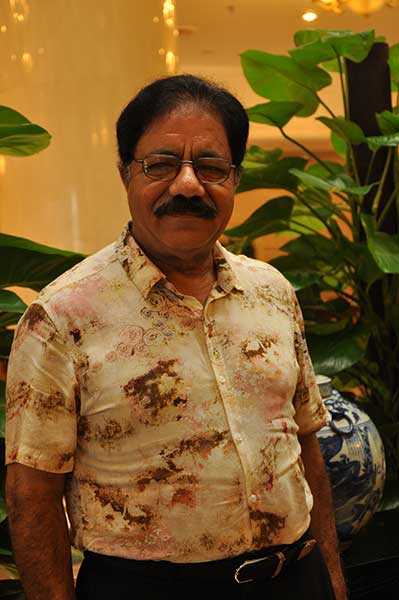Biologist's work helps country control bird disease
 |
|
Mazhar Khan says he was honored to be invited to the military parade in Beijing for the celebration of the 70th anniversary of the end of World War II.[Photo by Liu Xiangrui/China Daily] |
Every summer, Mazhar Khan goes to Nanning, capital of the Guangxi Zhuang autonomous region in Southwest China, to spend a month or two.
And each time, the professor of pathology at the University of Connecticut is welcomed with a big reception in Nanning, which he says is like his second home.
Khan, 66, is a US citizen of Pakistani origin, and he was in Beijing on Sept 3 to witness the grand military parade marking the 70th anniversary of the end of World War II.
"It was a great honor for me to be invited to the celebrations," Khan tells China Daily. "It reminds me of how China has progressed in the past years."
Khan, who holds a PhD in veterinary medicine, applied molecular biology to diagnose diseases in birds related to mycoplasma and salmonella bacteria.
Along with other researchers, he developed a DNA-test kit for mycoplasma in chickens, which is often used in the United States.
Khan first came to China in 1998 as a visiting scholar at the Guangxi Institute of Veterinary Research, where he collaborated with in-house biologists on a project on the prevention of major communicable diseases including bird flu. That partnership encouraged both sides to continue working together on similar projects.
In the past two decades China has rapidly changed, he says, apparent from the economy and the number of airports, highways and general urban expansion.
But society in China has changed, too, he says. Chinese have become more conscious about protecting the environment and have become more confident in themselves.
In addition, Chinese are increasingly getting international exposure.
Khan used to be among the very few foreigners in Nanning in the '90s. Without much knowledge of Chinese and with his family back in the US, his stay in China was lonely.
"But I received great help from my Chinese colleagues," he says.






















